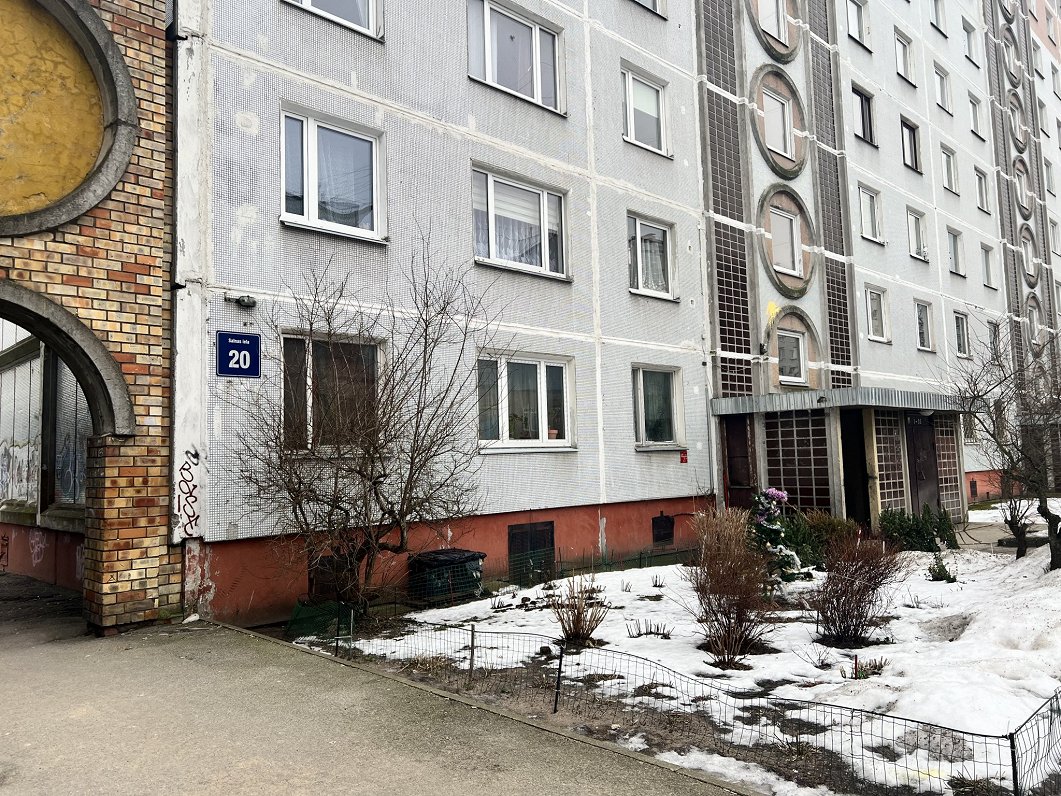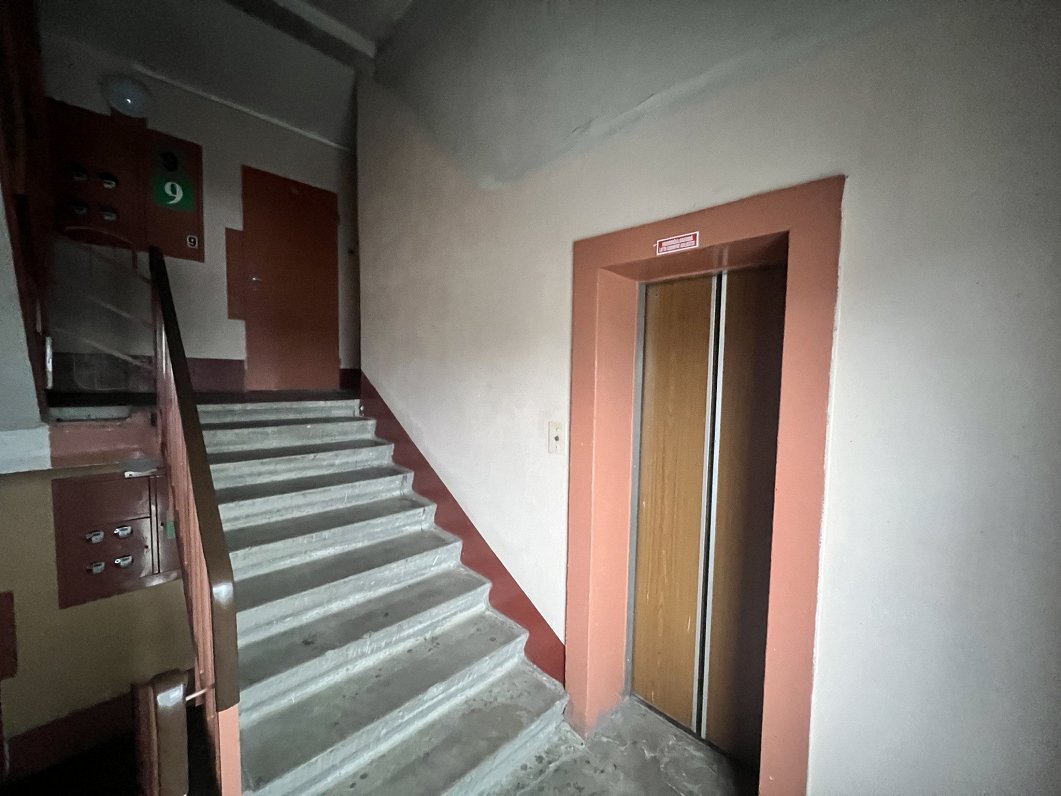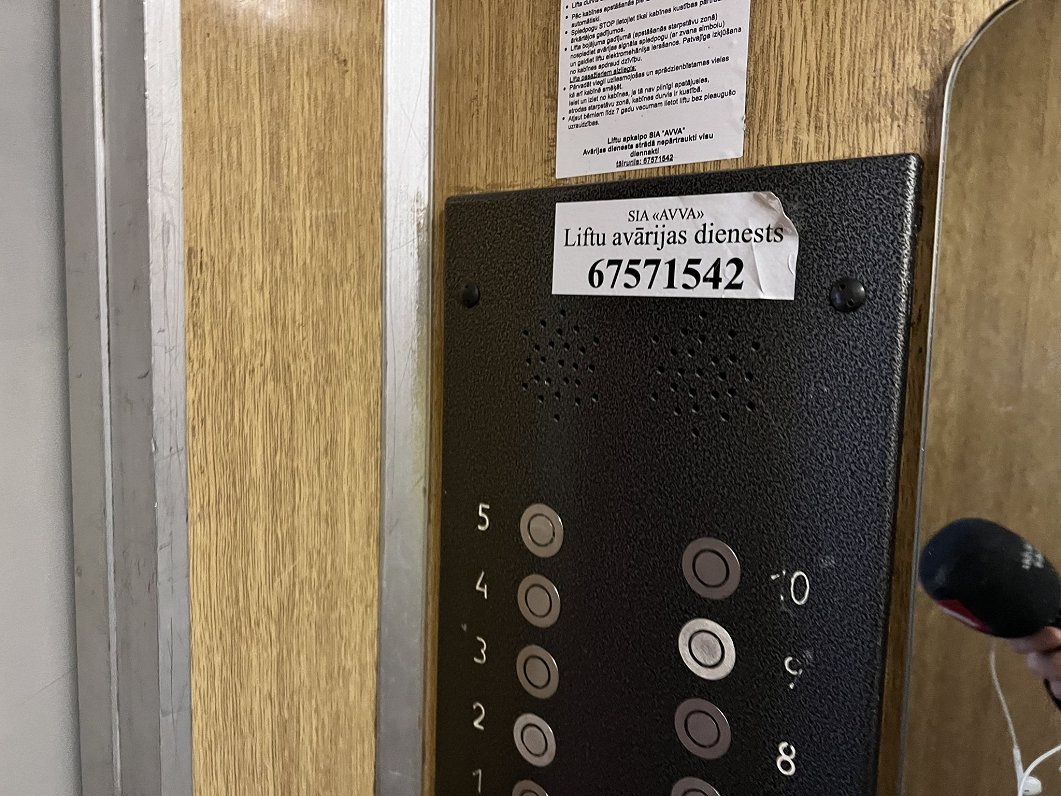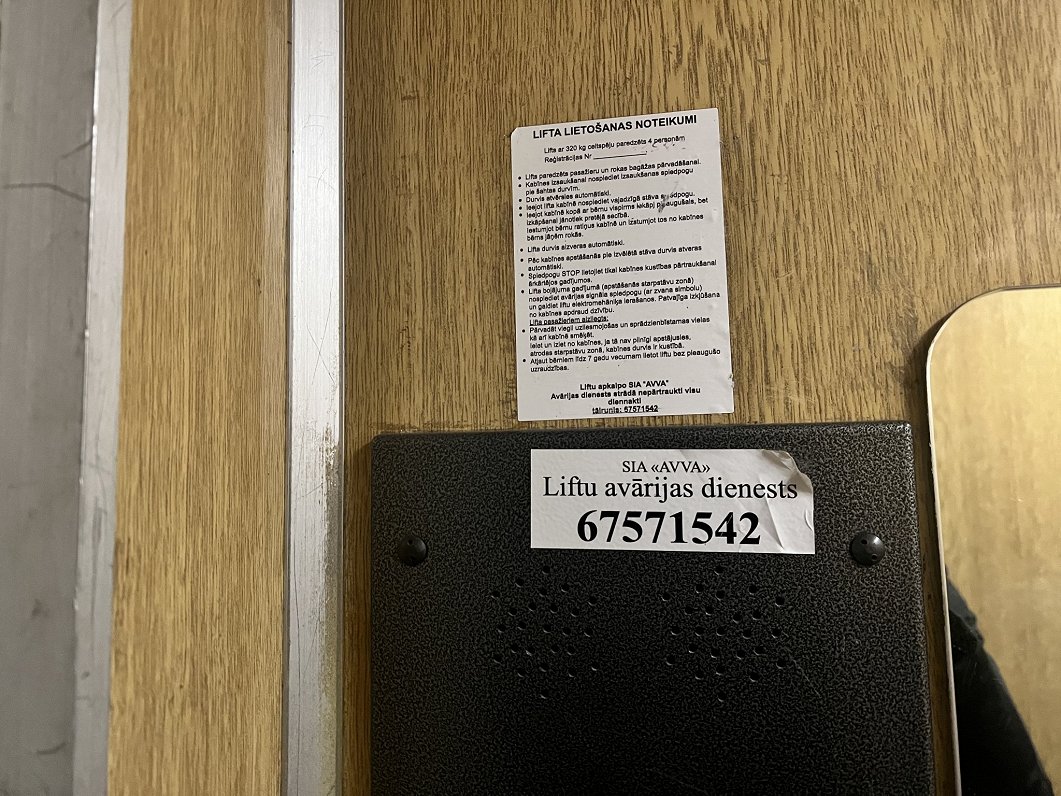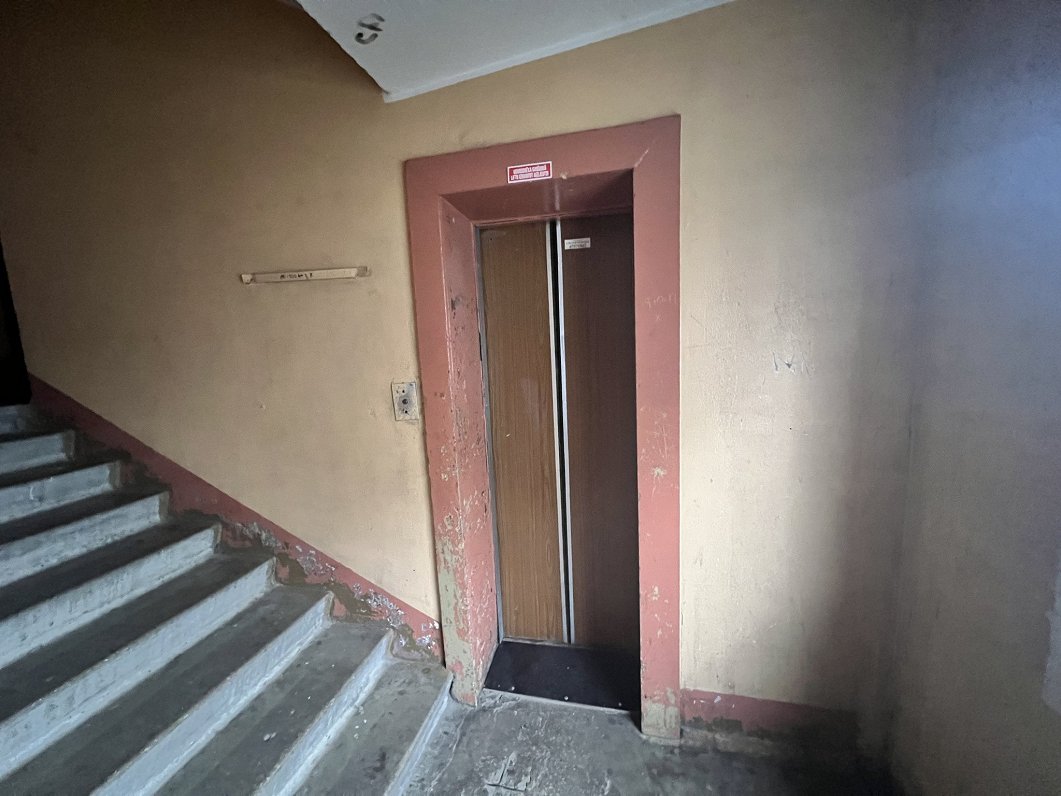Latvian Radio met a resident of the Pļavnieki district in Rīga, Sabīne, in her 9-storey house, built in 1986. The old elevator is narrow, fitting three to four people. She said that the elevator is routinely out of order and people sometimes get stuck in it.
"On December 29, I too got stuck. I was let out. I must say, the elevator emergency service arrived quickly, within 10 minutes. They tinkered around some. When I came back home in the evening, the elevator was in working order. Then it broke down on December 31 and didn't work until January 2. Ok, it was the holidays. Then on January 2 it worked and then broke down again, my neighbor got stuck inside. Then I got angry and wrote an e-mail [to the house manager]. [..] The response was that the responsible service has been informed."
The Pļavnieki district society's flash survey shows that out of 16 people living in Soviet-time buildings, 13 do not think the elevator is in a critical condition, although most report that there are 'minor issues' from time to time.
Rīga City Council's Housing and Environment Committee deputy Valdis Gavars thinks differently. He said that of all buildings with elevators, two-thirds are managed by Rīga House Manager (Rīgas namu pārvaldnieks, RNP). There are 1,200 elevators in RNP's managed buildings. Gavars has found that only 4% of those elevators are under 35 years old, but over 40% are more than 45 years old. The situation is similar also in buildings managed by different companies.
"In the entire city, in the old houses, around 7% of the elevators might have been replaced over the years. And then there are the new projects where there are new elevators, but in some of the new houses, elevators have been replaced even when they haven't worked for a full 20 years yet. So the situation is dangerous."
RNP stated that each elevator is checked and maintained twice a month. The company's representative Krists Leiškalns said:
"Currently we don't have any concerns about technical issues. If there are concerns that the elevator does not meet all requirements, the operation is stopped. So the situation is stable. The negative thing is that we cannot access original spare parts. Most of the elevators were produced in the Soviet Union, mostly in Belarus. [..] The lack of access to spare parts makes the time to repair elevators longer."
One of the biggest elevator maintenance companies, Kone Lifti Latvija, agreed there are issues. The company services 1,500 elevators throughout the country, of which most are old. The company receives resident complaints daily.
The company's representative Juris Indriksons said that in theory the old elevators should not be used at all because the producer indicated 25 years of use. The spare parts issue is also pressing.
"Currently we live on existing stocks. But when those run out, it will be a big problem. [..]
"Nobody can tell how long the elevators will last. Because the old elevators keep breaking and people keep getting stuck. [..] With the current capacity, I think around 300 elevators can be replaced per year. In Rīga, there are around 5,000 old elevators in total, throughout Latvia – around 7,000."
If all service companies work at maximum capacity to replace all elevators, it could take 16 years. This is way too long, so the Rīga City Council has started to look for other solutions, said Housing and Environment Committee chair Viesturs Zeps.
"One of the solutions is to see how the replacement of elevators could be included in the environmental accessibility program under the auspices of Economics Ministry. [..] We analyzed several loan instruments for RNP, but of course it would cost the residents. The third is some sort of a municipal co-financing."
The next discussion about elevators in the committee is expected within a month.
